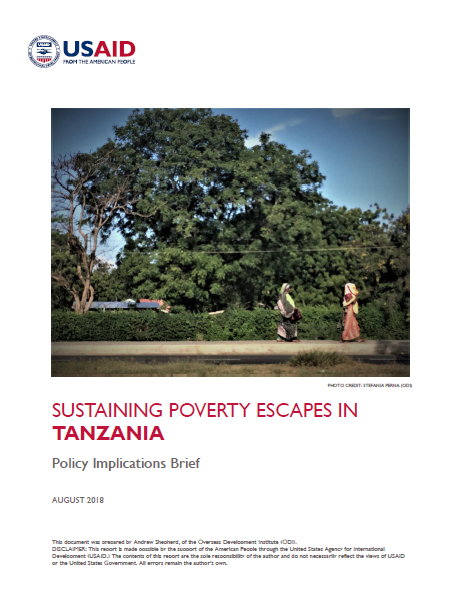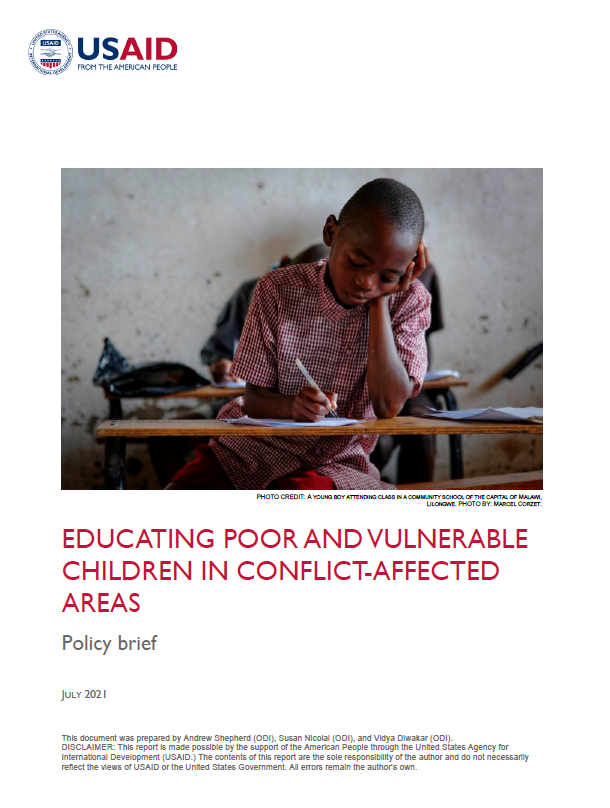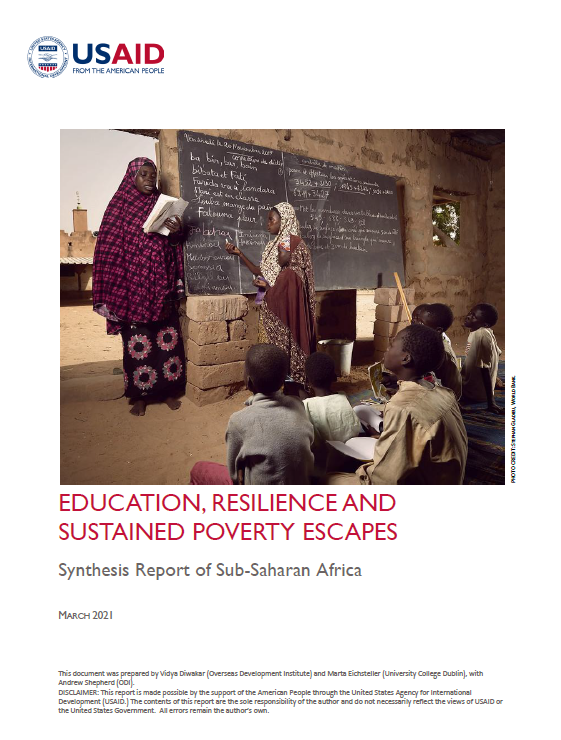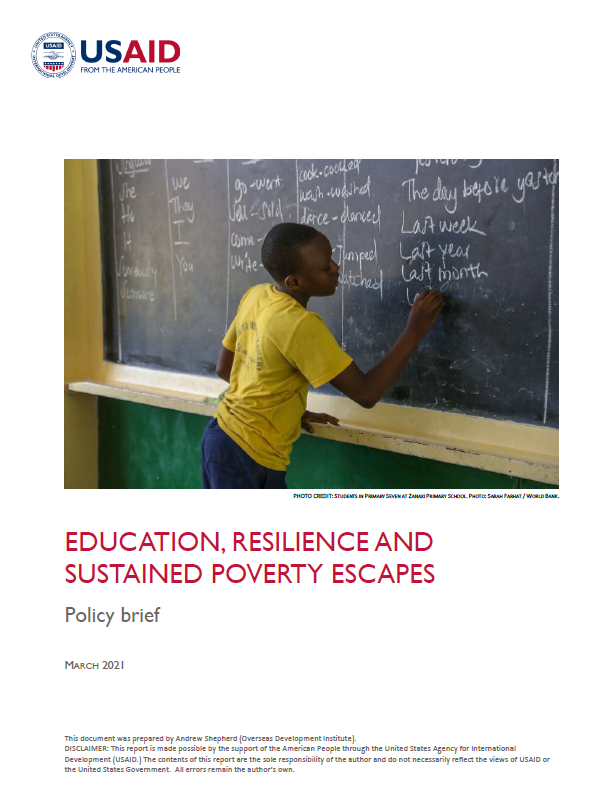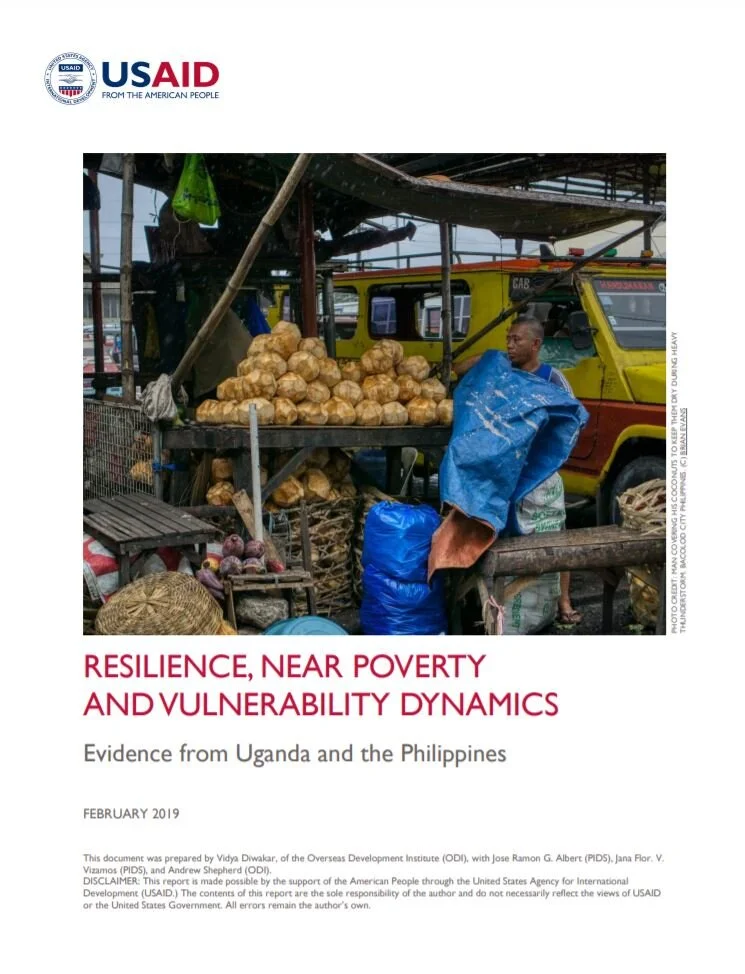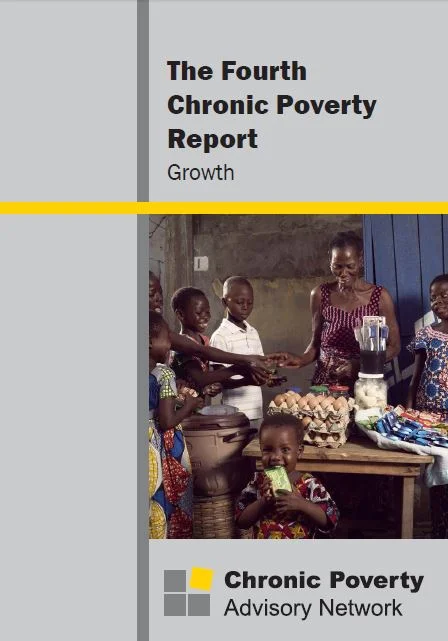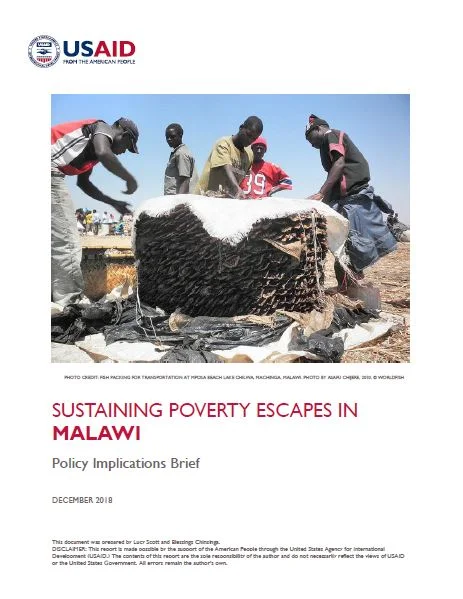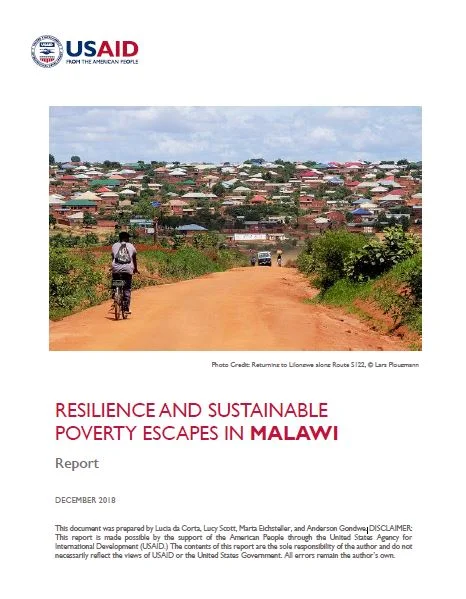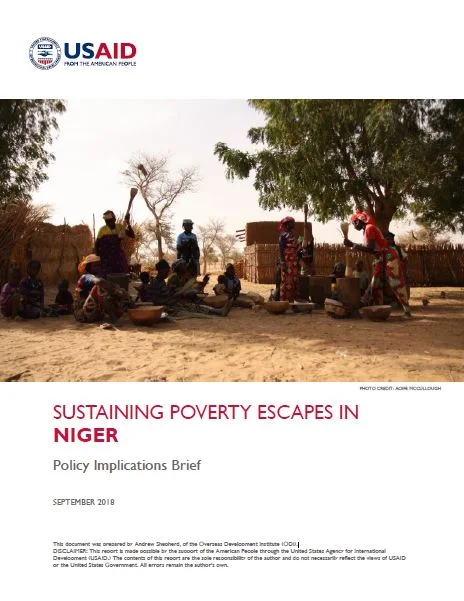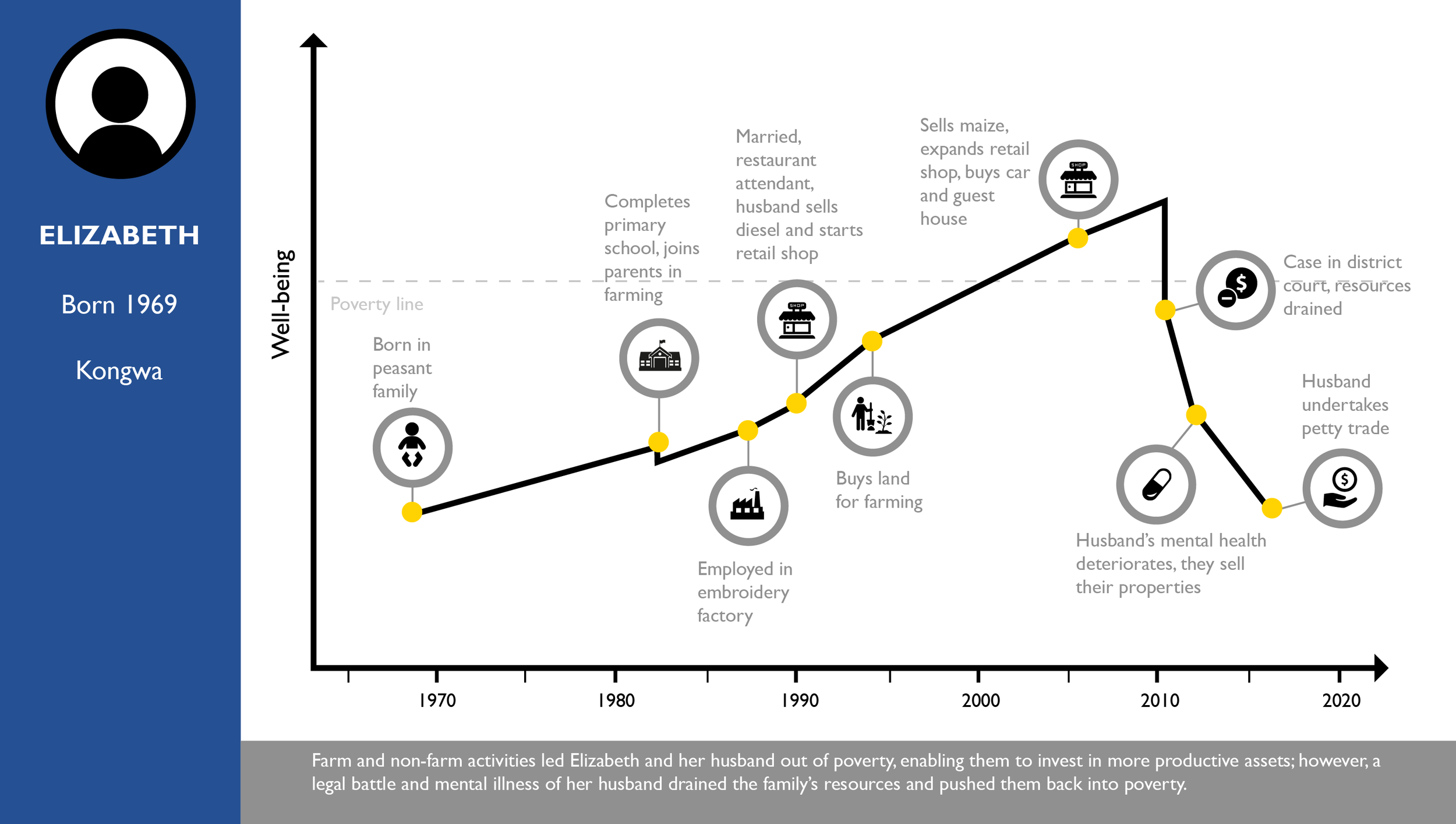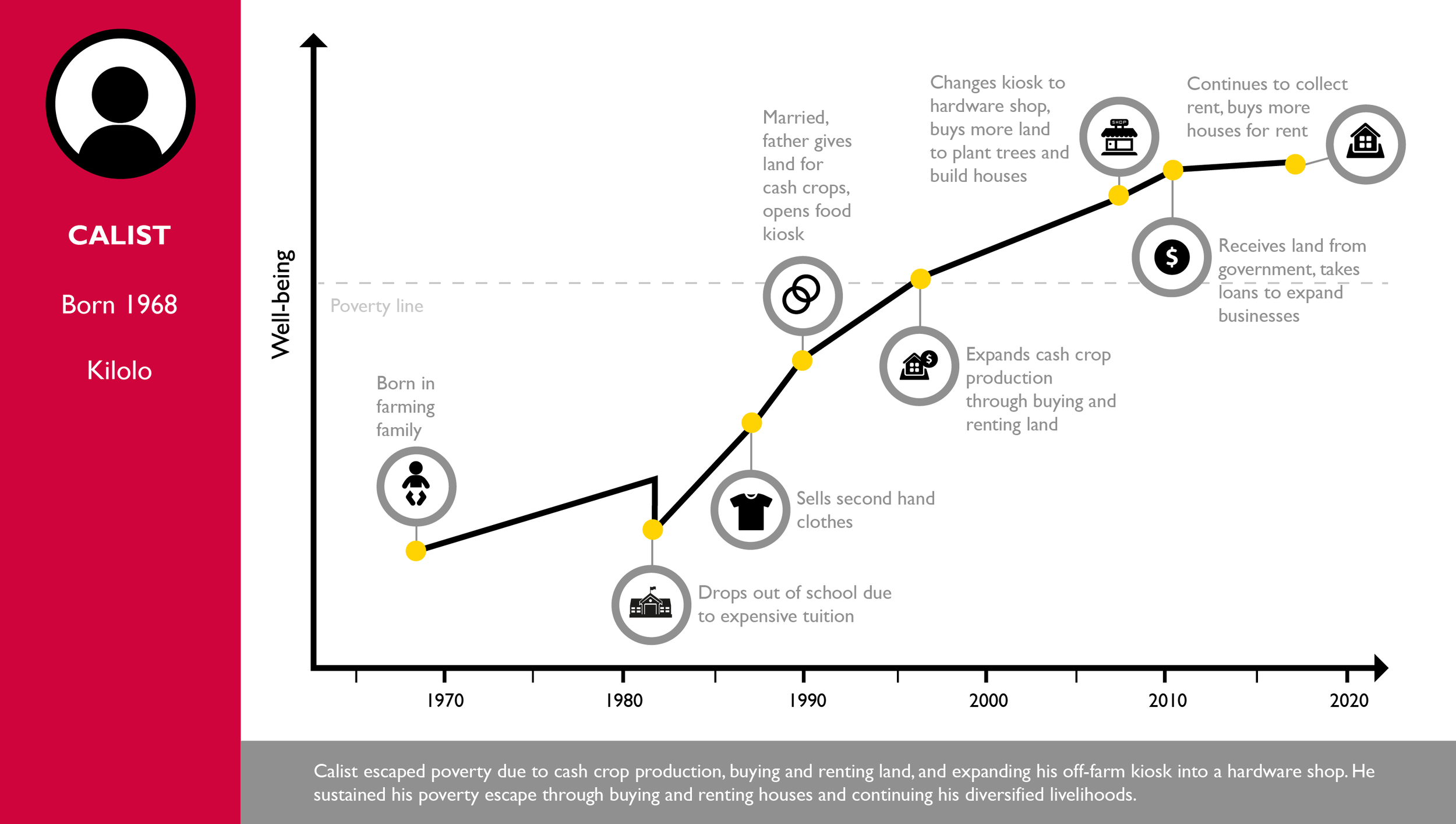This brief draws on results of mixed methods research in Tanzania, to offer policy and programming implications for sustained poverty reduction.
The Government of Tanzania has focused on poverty reduction as a core objective of policy since 2000. There was growth throughout this period, and significant poverty reduction from 2007 to 2014, but also impoverishing effects. This research research investigated the extent and drivers of transitory and sustained escapes from poverty to better understand the sources of resilience that enable people to sustainably escape poverty given the complex risk environments in which they live.
The data sources that the research in Tanzania draws on are: (i) analysis of the Tanzania National Panel Survey (NPS) ; (ii) key informant interviews in 2017 with a range of policy makers, researchers, development partners and program implementers; and (iii) 24 gender-disaggregated focus group discussions and qualitative interviews with 80 households across Iringa, Dodoma, and Morogoro in 2017/2018 to investigate the pathways of sustainable poverty escapes.
This brief responds to the question: how can programs be designed and implemented to support sustained escapes from poverty and tackle chronic poverty?
Out of the long list of topics outlined in the research summary below, these areas emerged as particularly salient issues out of the quantitative and qualitative analysis of resilience and sustainable poverty escapes:
Supporting growth from below through the rural and urban non-farm economy, balanced with support for smallholder agriculture
Developing a health insurance system with wide coverage
Reducing the impoverishment impacts of land conflicts
Download the policy implication brief here.
Author: Andrew Shepherd
Note: This Policy Implication Brief is accompanied by a report, which presents policy implications for sustaining poverty escapes in Tanzania that emerge from the analysis presented in this study.
Sustained and transitory escapes out of poverty in Tanzania
This report is part of the Resilience and Poverty Escapes project, supported by:

